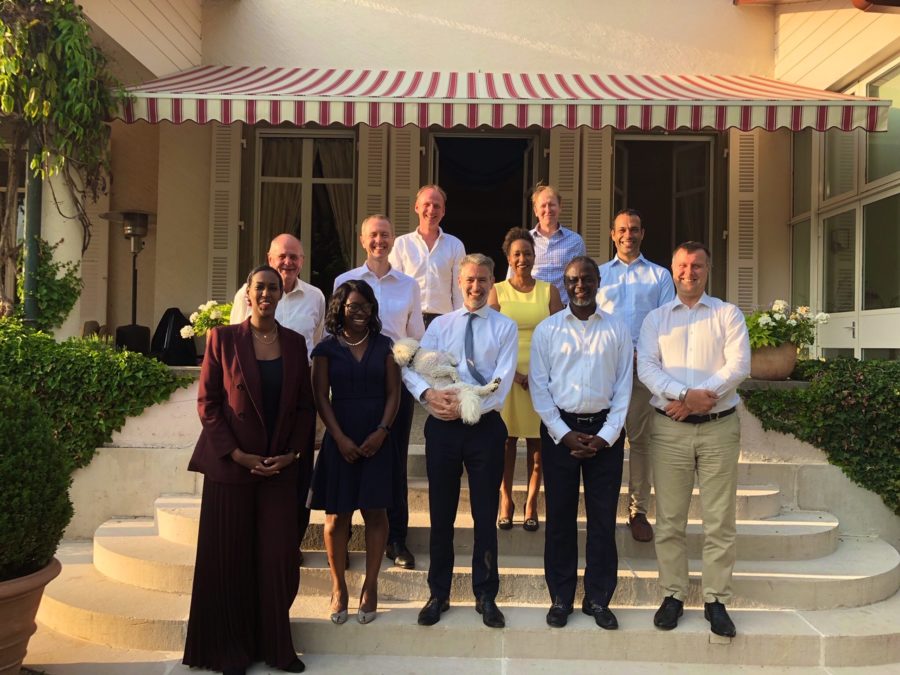Last week, the UK joined countries from around the world at the World Trade Organisation’s (WTO) annual Aid for Trade Global Review, calling on our trading partners to help boost developing countries’ participation in the global trading system.
Trade is a key driver of economic growth and can trigger positive changes in developing economies; helping to raise incomes, create jobs and lift people out of poverty.
Thanks in no small measure to free and open trade, a billion people have been taken out of absolute poverty in one generation, boosting global prosperity and security.
All of this is bolstered by developing countries’ membership of the WTO. In joining the world’s largest trade organisation, nations gain improved market access to almost every nation in the world; a cost-effective way to negotiate better trade terms with all 164 members at once; consistent and predictable trade rules that allow businesses to export and invest with confidence; and access to a fair mechanism to resolve disputes with other nations.
As one of the world’s largest economies and most vocal advocates of free and fair trade, the UK is committed to ensuring that developing countries can participate fully in the global system. We must also ensure that development and global prosperity are at the heart of our trade policy. We need a WTO which empowers all WTO members, including developing nations, to help build open and competitive markets that work for all of us.
This means ensuring that developing countries have the knowledge, skills and infrastructure they need to take advantage of overseas markets, to represent themselves on the world stage and to grow into our trading partners and free-trade advocates of the future.
In 2017 alone, the UK spent around £1.5 billion on Aid for Trade to support critical trade infrastructure such as ports and roads, as well as building trade skills, in developing nations worldwide, to help companies to expand their operations.
For example, just last year, through TradeMark East Africa, the UK helped fund a streamlined border crossing between Kenya and Uganda which helps more than 20,000 small-scale traders move goods between countries quickly and safely.
And just this month, the UK Government has allocated a further £600,000 to the Trade and Investment Advocacy Fund (TAF2+) to launch their new Gender, Social Inclusion and Trade network which aims to increase the technical skills of developing countries’ policymakers on embedding gender and inclusion issues in trade negotiations.
So, as the UK takes up its new role in the WTO as we leave the EU, we will continue to encourage wealth creation, economic growth and enterprise, all of which enable the poorest to lift themselves out of poverty.
That includes helping fund projects like the WTO’s Enhanced Integrated Fund (EIF), which recently provided support and training to mango and cashew nut farmers in Burkina Faso, the vast majority of whom are women. This helped create more than 1,400 jobs and improve the incomes of nearly 10,000 people.
It also includes supporting the UK’s Commonwealth Small States Office in Geneva, which provides office space and support for smaller Commonwealth nations to help bear the cost of representation at the WTO.
Projects like this not only benefit developing nations, but also businesses and jobs in the UK. Increased trade and investment in those markets creates opportunities for British firms – supporting producers and value chains and opening new and fast-growing markets for exporters. It also directly leads to more choice for consumers.
Building a more prosperous world and supporting long-term global economic security is clearly in all of our interests.
So we will continue to do what we can to bring everyone to the table, to make sure that everyone’s voice is heard at the WTO. That also means doing everything in our power to empower women and minorities worldwide to play a full and active role in global trade. As developed economies that have reaped the rewards of global trade, we cannot allow the ladder to be pulled up on developing countries.
Finally, we must also continue to support the multilateral trading system as a whole, and resist the establishment of new trade barriers which limit prosperity around the world. At a meeting of G20 leaders last month, the UK pressed the need for urgent re-commitment to the WTO in the face of rising trade tensions around the world.
Above all, the UK believes that without the contribution of all countries to the world’s economy, developed and developing, we will all be poorer for it; and that we all benefit when developing countries trade more.

